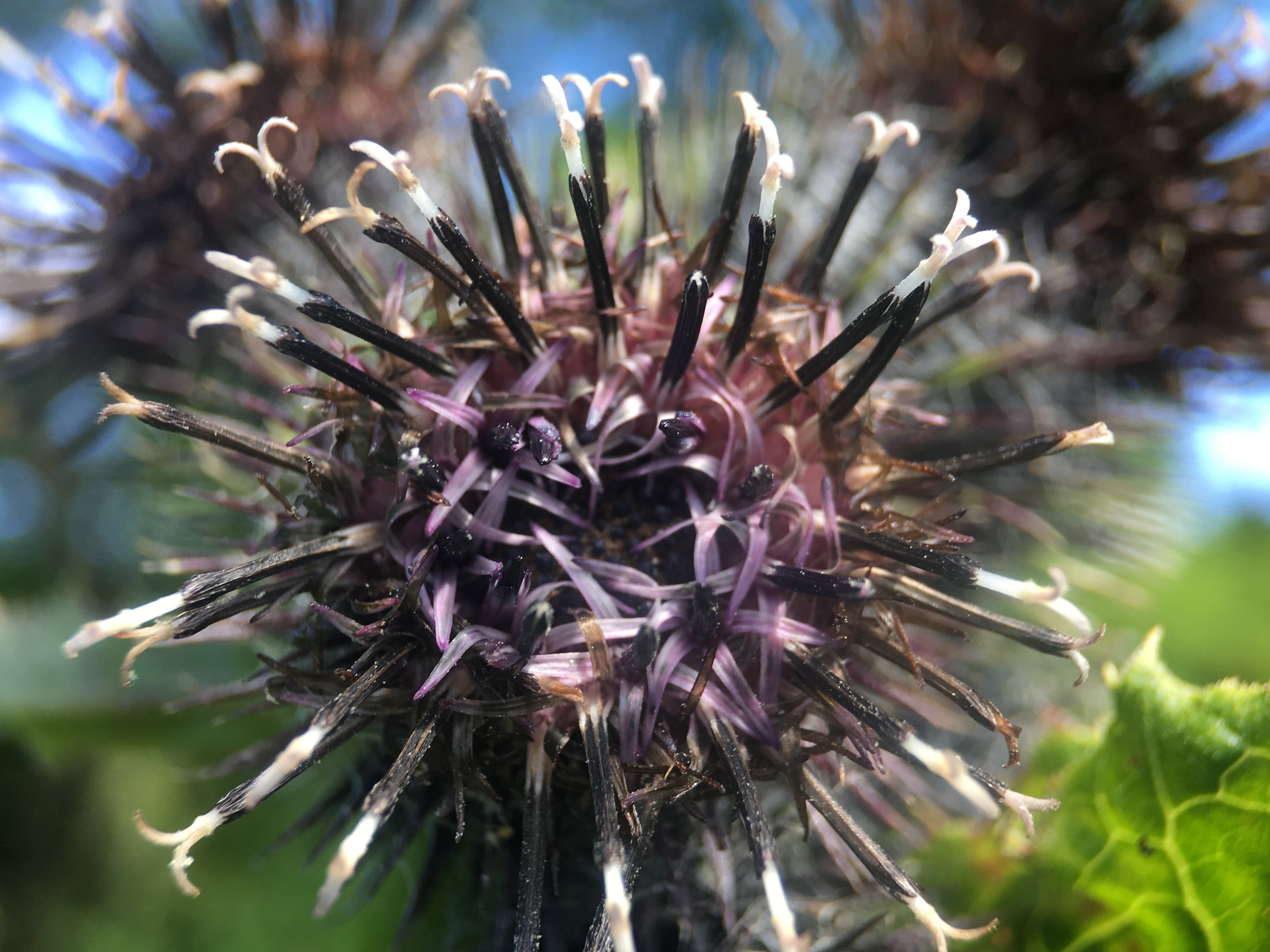Plant Meditation Club: This week we meditated with mùxiāng, 木香, costus root, whose scientific name is Aucklandia lappa.

Mù xiāng for promoting emotional connection and devotion to the human race warrants more investigtion.
Mouth/Taste:
Smells like fake cheese, or faintly of goat milk. The flavor is tangy, mushroomy, a little sweet (especially on the second steep). The feeling is dry. Energy comes to my nose (which is associated with the lungs in Chinese medicine).

Meditation 1:
My daughter: At the start of the meditation we were at a pizza shop and there was pepperoncini on the pizza. You said (meaning me, Lily), "Oh god, I really want it, but I can't have it." Then a cup of this tea appeared.
I asked the plant "Tell me what the big thing is that you are good for."
I saw a scorched Earth with a giant bomb that was exploding.
I heard (like a song) "Think of the human race."
Then I see a giant pepperoncini in the sky.
Me (Lily): I feel my nose, then my base (first chakra area). Two thin (about 1" wide) yellow energy lines go up my abdomen and torso (this is along the stomach meridians). Gradually the yellow lines get wider. Then there is more yellow on the left and it spreads out to fill my left lower quadrant. It talked to me about my digestion slowing down, suggesting maybe I need to get a thyroid test. I felt increased peace and grounding.
I decided I did not want to go to my school because it is so oppressive of my voice, which is bad for my thyroid (my hashimoto's is in remission and if I continue to comply with the wishes of the school I do feel it will become an active problem again, I would not be surprised if it is already moving in that direction). This does not mean I will stop attending, but the herb is making me honest with myself, and I will need to find a solution that works for my health if and when I continue my doctoral program in acupuncture and Chinese medicine.
My daughter gets giggly.
Meditation 2:
Me: I am ruminating about my conflicted feelings about the people at the school who are giving me trouble and the school in general, my heart hurts a little.
My daughter: I see nothing for seven minutes. Then I see a pepperoncini with a mouth and two eyes. It says: "I will be very important to your life, but mostly your mom's life. Very important!"

Summary and Traditional Use:
This herb showed up for improving digestion, most likely for digestion of fats, like cheese*, thyroid health, and having more humanity/the cost of bombs.
*Pepperoncini peppers have a capsaicin level of 193 parts per million (ppm). Capsaicin is known to help digest fats. Pickles contain vinegar, which debatably helps digest fats and/or calm inflammation when the gut is irritated by certain foods. For easier fat digestion (with cheesy pizza) this herb offers a formula: a cup of mù xiāng root tea, and pepperoncinis as one of your pizza toppings.
Gut bombs and bombs. Use of this herb for promoting more emotional connection and devotion to the human race warrants more investigtion.
This traditional Chinese herb is known for activating the gallbladder, large intestine, spleen, stomach, and triple burner. The gallbladder helps break down fats into food which eases digestion (spleen, stomach and large intestine in this case). This herb is used for eliminating food stagnation and diarrhea. (Bensky, Materia Medica, ed 3). This herb can help strengthening the will, and over time reducing waking from nightmares (Divine Farmer's Classic of Materia Medica, trans: Wilms). To me this indicates it moderates heat, which can be involved in nightmares and diarrhea (excess heat), and prolonged excess heat (eg autoimmune attack and inflammation of the thyroid) can lead to hypothyroidism and slowed digestion.
Thyroid: this herb is used in ayurvedic medicine for thyroid support. In the Ayurvedic strategy for supporting hypothyroidism it is important to reduce ama by moving food along at the appropriate pace, clearing the body of toxins and/or undigested metabolic waste. This herb has been historically relied upon to
Invitation:
Do you have experience with costus root, mùxiāng, 木香 or Aucklandia lappa? Please share in the comments below, we would love to hear.
